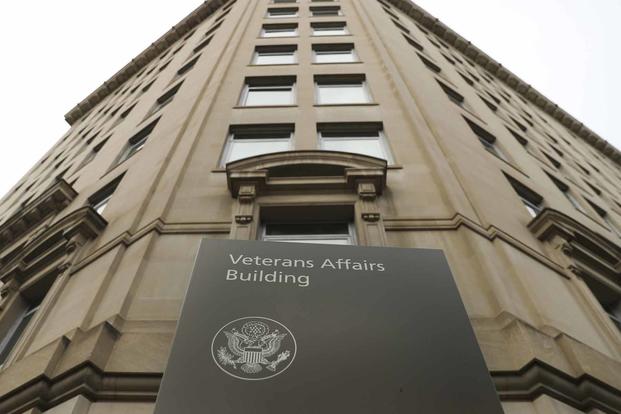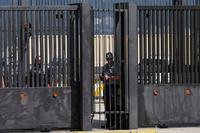The White House is requesting an 11% boost to the Department of Veterans Affairs budget for 2023, money that would fund anticipated increases in medical costs, expand the family caregiver program and provide for several capital improvement projects at medical centers and cemeteries.
The $301 billion proposal marks the first time the VA's budget would exceed $300 billion -- more than six times it was in fiscal 2001 just before the 9/11 attacks and subsequent wars in Iraq and Afghanistan -- and moves the department second only to the Defense Department in discretionary spending.
Under the plan, mandatory spending, outlays the VA is required to pay including veterans disability compensation, life insurance and indemnity payouts and transition benefits, would see a nearly 6% increase to $161 billion.
Discretionary spending at VA would rise to $139 billion, or 18.7% more than the department's 2022 budget. In a statement accompanying the budget documents, VA Secretary Denis McDonough said in a press release the plan would deliver "critical resources to help VA serve Veterans, their families, caregivers and survivors as well as they have served our country."
"It will allow VA to continue providing more care, more services, and more benefits to more Veterans than any time in its history," McDonough said.
According to the proposal, the department's medical care budget would rise by 22%, to nearly $119 billion, to address health-care inflation, anticipated increases in enrollment, growth of private sector care and expansion of other programs.
The plan calls for bolstering the budget for in-house VA medical care by 20%, to $70.6 billion, and for VA-covered private health services, also known as community care, by 22% to $28.5 billion. It would increase funding for mental health-care programs by 15% to $8.5 billion and for prosthetics care, to $4 billion, up 8%.
VA's caregiver services also would see an increase in fiscal 2023, with the department proposing a 31% increase, or a total of $1.8 billion, to compensate those enrolled in the Program of Comprehensive Assistance for Family Caregivers.
The increase would allow VA to cover caregivers expected to apply after eligibility broadens on Oct. 1, 2023 to include seriously injured and disabled combat veterans who served from May 7, 1975, to Sept. 10, 2001.
And it would enable VA to continue assessing and processing 109,000 applications it has received since last October from veterans who served during the Vietnam War and earlier, while also considering appeals from those who were dismissed from the program, according to the budget documents.
The VA announced last week that it was pausing reviews that could force up to 90% of caregivers from that program, an unintentionally high figure according to officials.
The budget also includes additional funding to combat veterans' homelessness and fund suicide prevention programs, to include hiring more staff to man the Veterans Crisis Line and assist as it transitions to the new three-digit 988 phone number.
The department also said it will expand women's health-care services, requesting $767 million for gender specific care and to support efforts to improve access to maternity care, obstetrics and gynecological care.
The VA is also planning to ask Congress for legislation that would allow it to expand veterans' access to fertility services, to include covering in vitro fertilization and adoption reimbursement for some veterans, and to eliminate copayments for contraception care and services.
Also included in the proposed budget is $2.3 billion to fund construction and improvements at several major medical facilities, including seismic upgrades to facilities in Portland, Oregon, and Fort Harrison, Montana, and constructions and renovations in Canandaigua, New York, as well as construction or replacement of at least two cemeteries..
An additional $789 million would be marked to start minor construction projects, and $80 million would go toward building VA's zero emission vehicle fleet.
With the release of President Joe Biden's budget, Congress will begin deliberations over funding and develop its own spending package, with a goal to complete it by Oct. 1.
VA officials will testify on Capitol Hill in the coming weeks to defend the request. But in the past, Democrat and Republican lawmakers have supported VA budget requests and been inclined to increase the department's budget rather than trim any proposals.
In the VA’s press release announcing the budget McDonough called the proposal "great news" for veterans because it means the department "can continue delivering world-class, timely care and benefits."
"The budget makes smart investments while also reducing deficits and improving our country's long-term fiscal outlook," McDonough said.
-- Patricia Kime can be reached at Patricia.Kime@Military.com. Follow her on Twitter @patriciakime.
Related: VA Was on a Path to Kick 90% of Legacy Caregivers Out of Program Before Review Suspension













